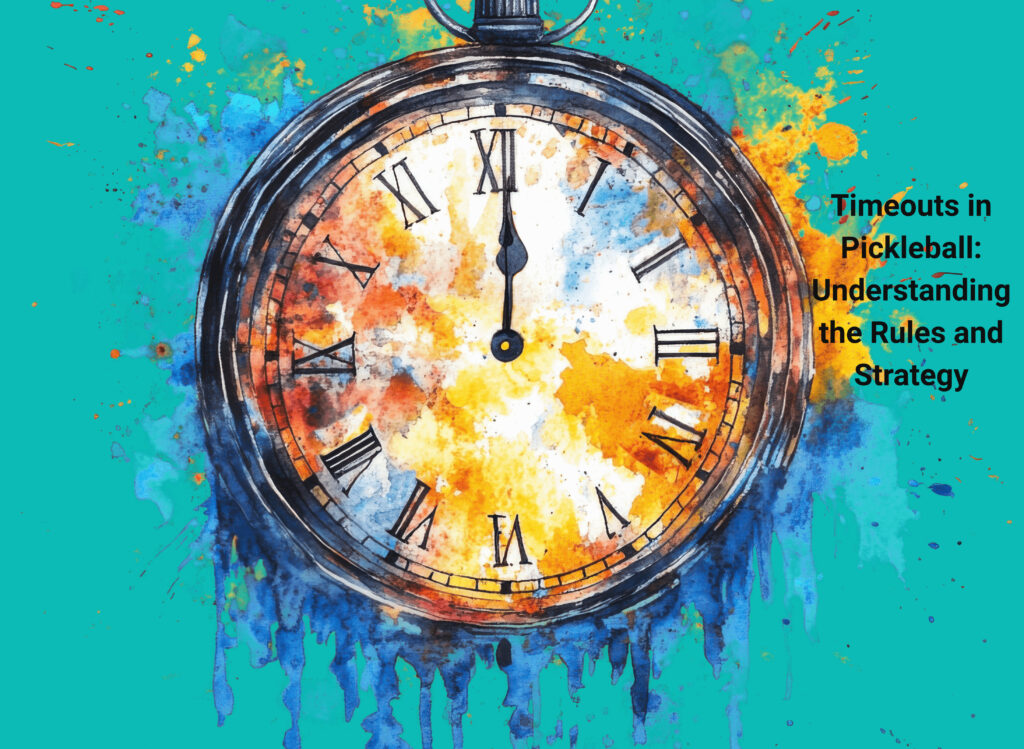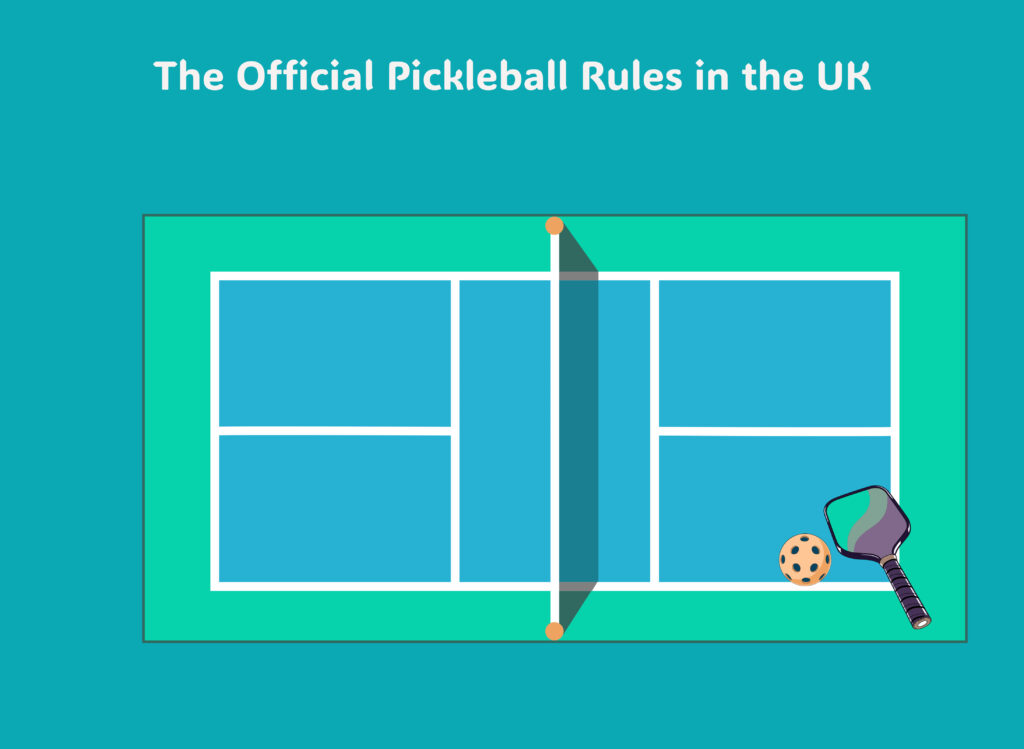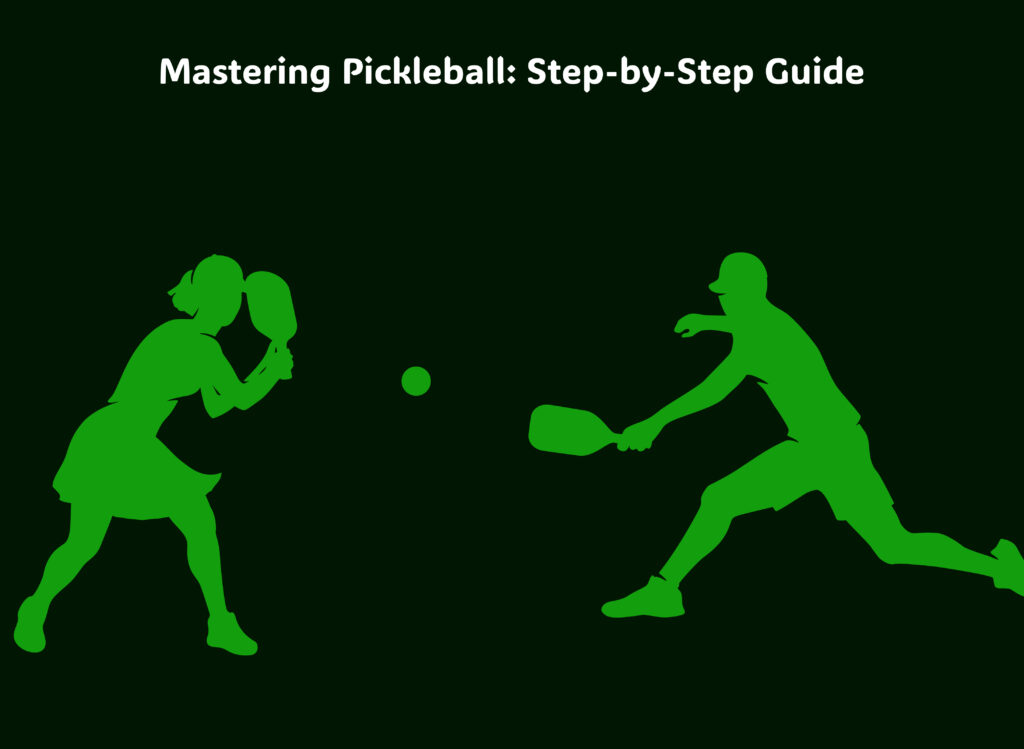- 1️⃣ Standard Timeouts in Pickleball Matches
- 2️⃣ Medical Timeouts in Pickleball
- 3️⃣ Equipment Timeouts in Pickleball
- 4️⃣ Referee Challenge Timeouts in Tournament Play
- 5️⃣ Free Challenge Timeout (Bonus Timeout in Some Tournaments)
- 6️⃣ Cooling Timeouts (Unofficial Timeouts in Recreational Play)
- 7️⃣ Final Thoughts: Using Timeouts to Your Advantage in Pickleball
Timeouts in Pickleball come in a variety of forms. This guide explains all the types of timeouts in pickleball, including standard timeouts, medical timeouts, equipment timeouts, referee challenge timeouts, free challenge timeouts, and cooling timeouts.
Knowing how to use timeouts in Pickleball effectively can make a huge difference in competitive and recreational play. Pickleball is a fast-paced and strategic sport, and whether you need a break to regroup, discuss tactics, challenge a call, or recover from fatigue, timeouts allow players to reset and refocus.
In UK pickleball tournaments and club matches, different types of timeouts are used based on rules, player needs, and game situations.
1️⃣ Standard Timeouts in Pickleball Matches
What is a Standard Timeout in Pickleball?
A standard timeout is a player-requested break used to stop the game temporarily, allowing time to rest, strategise, or break an opponent’s momentum.
Rules for Standard Timeouts:
✅ Each team (or player in singles) is allowed two timeouts per game.
✅ Each timeout lasts up to one minute.
✅ Timeouts must be requested before the next serve.
✅ After the timeout, players must be ready within the 60-second period.
Best Situations to Call a Standard Timeout:
✔ Breaking an Opponent’s Momentum – If your opponents are scoring repeatedly, take a timeout to reset the pace.
✔ Regrouping & Planning – Use the timeout to discuss strategy adjustments with your doubles partner.
✔ Recovering from Unforced Errors – If you’ve made multiple mistakes in a row, a timeout can help you regain focus.
✔ Managing Fatigue – Even a quick one-minute break can help prevent exhaustion.
🔥 Key takeaway: Using a standard timeout wisely can stop an opponent’s hot streak and give you time to recover and reset.
2️⃣ Medical Timeouts in Pickleball
What is a Medical Timeout?
A medical timeout is granted when a player experiences an injury, illness, or health-related issue that affects their ability to continue playing.
Rules for Medical Timeouts:
✅ Each player is allowed one medical timeout per match.
✅ The timeout can last up to 15 minutes, depending on the severity.
✅ If the player cannot continue after the timeout, they must forfeit the match.
✅ In tournament play, a referee or tournament director will assess the situation.
Common Reasons for Medical Timeouts:
✔ Injuries (Falls, Sprains, or Muscle Cramps) – Allows players to recover from an unexpected physical issue.
✔ Health Issues (Dizziness, Dehydration, or Heat Exhaustion) – Essential for safety in hot playing conditions.
✔ Unexpected Medical Emergencies – If a player has a sudden health condition, play is paused until they recover.
🔥 Key takeaway: Medical timeouts prioritise player safety, ensuring that injuries or health concerns are properly addressed before play resumes.
3️⃣ Equipment Timeouts in Pickleball
What is an Equipment Timeout?
An equipment timeout is granted when a player experiences a gear-related issue that prevents them from continuing play.
Rules for Equipment Timeouts:
✅ Players can request one equipment timeout per match.
✅ The timeout lasts up to 2 minutes.
✅ If the issue is not resolved in time, the player must continue or forfeit the point.
Common Reasons for Equipment Timeouts:
✔ Broken or Cracked Paddle – The player can swap to a backup paddle.
✔ Shoe Issues – Adjusting laces, fixing grips, or changing shoes.
✔ Eyewear Problems – Fixing fogged-up or slipping sunglasses.
✔ Clothing Malfunction – Adjusting or changing shirts, wristbands, or other gear.
🔥 Key takeaway: Equipment timeouts allow players to resolve gear issues without disrupting gameplay.
4️⃣ Referee Challenge Timeouts in Tournament Play
What is a Referee Challenge Timeout?
A referee challenge timeout allows players to contest a referee’s decision in sanctioned tournament play. This is common in professional pickleball matches, where officiating is stricter.
Rules for Challenge Timeouts:
✅ Players must request the challenge immediately after the disputed call.
✅ The referee will review the situation and make a final decision.
✅ If the challenge is successful, no timeout is deducted.
✅ If the challenge is unsuccessful, the player/team loses one of their standard timeouts.
Best Situations to Call a Challenge Timeout:
✔ Disputed Line Calls – If you believe a ball was in or out but the referee made the wrong call.
✔ Non-Volley Zone Faults (Kitchen Violations) – If an opponent steps into the kitchen but it goes unnoticed.
✔ Foot Faults on Serves – If a server illegally steps on or over the baseline.
🔥 Key takeaway: Challenge timeouts are a valuable tool in competitive play but should be used wisely.
5️⃣ Free Challenge Timeout (Bonus Timeout in Some Tournaments)
What is a Free Challenge Timeout?
A free challenge timeout is an extra timeout granted to a team or player if their first challenge is successful.
Rules for Free Challenge Timeouts:
✅ If a player wins their first referee challenge, they are rewarded with an additional timeout.
✅ This timeout does not count against their standard timeouts.
✅ If the player loses the challenge, they do not receive an extra timeout.
Why Free Challenge Timeouts Matter:
✔ Encourages players to challenge bad calls without losing valuable timeouts.
✔ Reward for accurate rule knowledge and fair play.
✔ Gives an extra strategic advantage in long matches.
🔥 Key takeaway: Winning a challenge can earn you a free timeout, which can be used later in the match.
6️⃣ Cooling Timeouts (Unofficial Timeouts in Recreational Play)
What is a Cooling Timeout?
A cooling timeout is an informal break that players agree upon, typically used in hot or extreme weather conditions.
Rules for Cooling Timeouts:
✅ Not officially recorded in tournament play.
✅ Typically lasts 2-3 minutes for hydration or shade.
✅ Used when temperatures are extreme or conditions become unsafe.
Why Players Use Cooling Timeouts:
✔ Hydration Breaks – Prevents dehydration and fatigue.
✔ Heat Management – Avoids heatstroke and sun exhaustion.
✔ Better Performance – Allows players to cool down and reset.
🔥 Key takeaway: Cooling timeouts are often agreed upon in social matches but are not officially recognised in tournaments.
7️⃣ Final Thoughts: Using Timeouts to Your Advantage in Pickleball
Strategically using timeouts in pickleball can change the course of a match. Whether you need a break, challenge a call, or adjust tactics, knowing when and how to call a timeout is a key skill in competitive play.
Key Takeaways:
✔ Standard timeouts (2 per game) allow players to reset and strategise.
✔ Medical timeouts ensure player safety and can last up to 15 minutes.
✔ Equipment timeouts allow players to fix broken gear.
✔ Referee challenge timeouts let players contest incorrect calls.
✔ Free challenge timeouts are rewarded for successful referee challenges.
✔ Cooling timeouts (unofficial) help players manage extreme weather conditions.
By understanding and using timeouts effectively, you can control the pace of the game, manage fatigue, and increase your chances of winning.
👀 Enjoyed this read? Fancy levelling up your game even more? Keep reading Dink Quest for the best pickleball tips, drills, and news in the UK!
🎯 Check out these popular posts next:
📬 Subscribe to the Dink Quest newsletter to Stay in the Loop and be the first to get new blog posts, UK pickleball news, tips, player spotlights and exclusive offers
👉 Click here to subscribe now
Get discounts and exclusive offers for Paddles, clothing and accessories from our shop
We’ve got plenty more where that came from! Whether you’re working on your third shot drop, curious about dinking strategies, or just figuring out how to hold your paddle without it flying across the court we’ve got you covered.
👉 Keep reading, keep learning, and keep dinking smart. Let’s grow the game together, one dink at a time. 💚
See you on the court!
The Dinkquest Team UK 🏓


